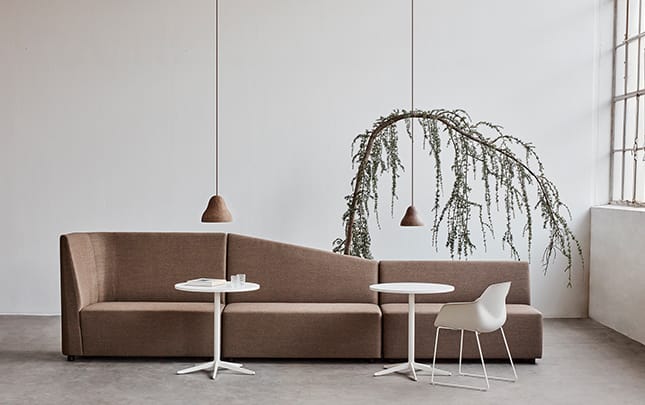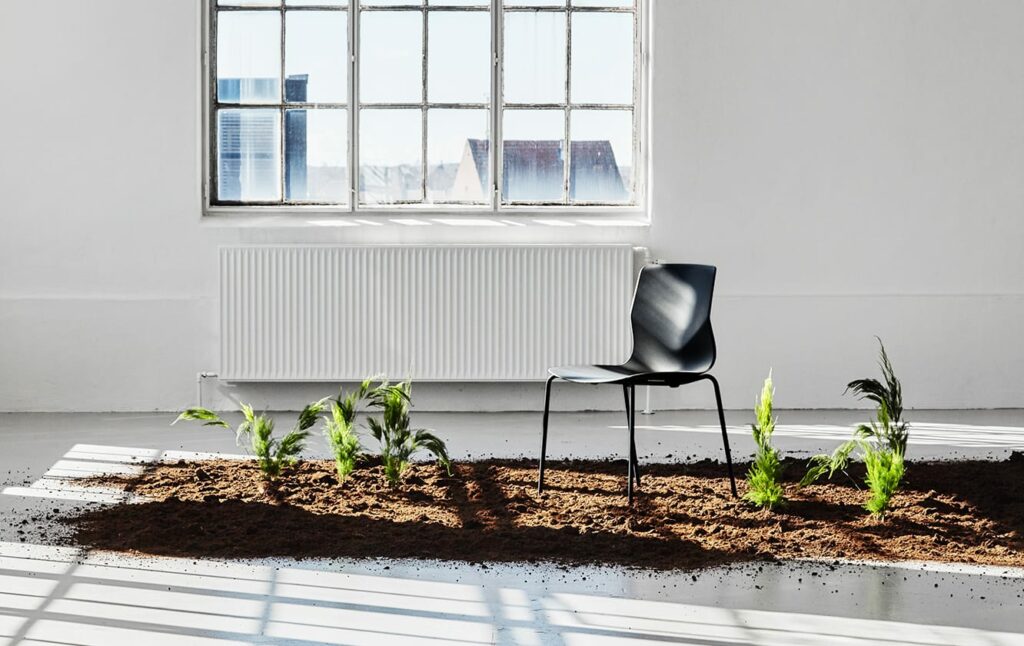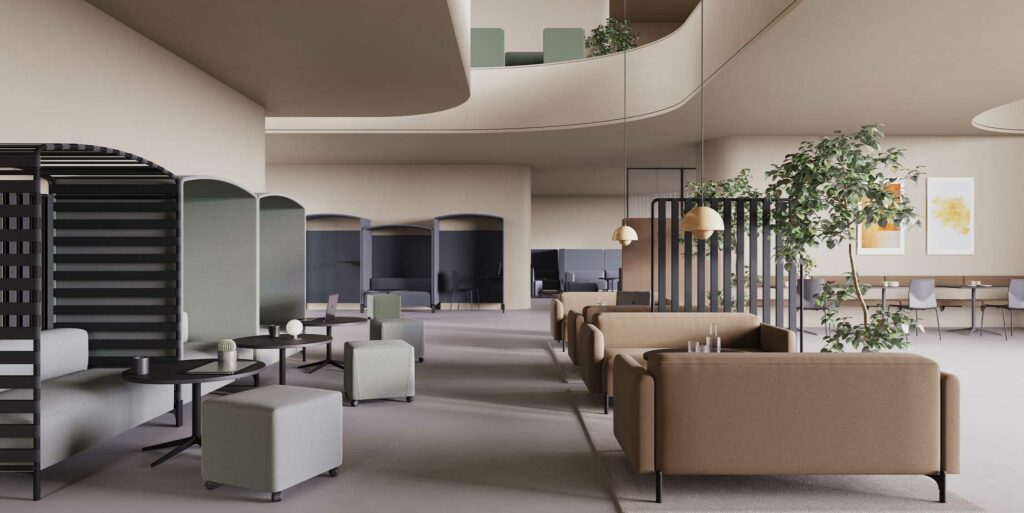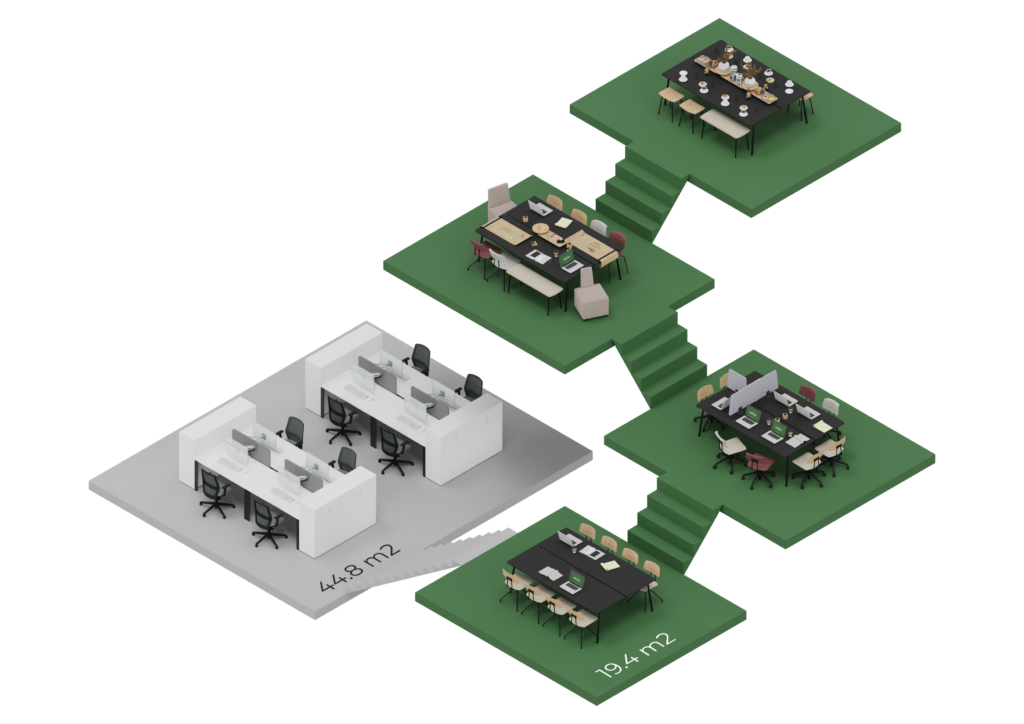In recent years, the global shift towards greater sustainability has significantly impacted various industries, and the corporate world is no exception. As businesses strive to reduce their environmental impact, the concept of eco-friendly offices has gained traction. A critical aspect of creating a sustainable workplace lies in reevaluating the furniture choices within office spaces.
In this exploration, we will delve into the challenges posed by furniture on the environment and how more sustainable alternatives address these issues and contribute to the creation of eco-friendly offices.
Understanding the Meaning of Sustainable Furniture
Understanding what constitutes sustainable furniture can be a subjective matter, as it can carry different meanings for different individuals and industries. However, the lack of a universally agreed-upon definition for sustainable furniture adds complexity to the discourse. For some, sustainability may revolve around the use of recycled materials and the promotion of circular economies, ensuring that furniture avoids resource depletion and does not contribute to waste generation. Others may prioritise the longevity and durability of furniture, emphasising designs that stand the test of time and reduce the need for frequent replacements. Additionally, factors such as ethical sourcing and fair labour practices contribute to the diverse perspectives on what qualifies as sustainable furniture. Navigating this nuanced landscape requires a holistic understanding that goes beyond merely focusing on eco-friendly materials, considering the broader context of social and economic sustainability in the manufacturing and consumption of office furniture.
The Environmental Challenges of Furniture
The environmental impacts of furniture are multifaceted, encompassing issues around pollution, resource depletion, and potentially harmful manufacturing processes. Furniture often relies on the extraction of non-renewable resources which emit greenhouse gases that contribute to climate change. The logging industry, which supplies the wood for many traditional pieces, can have detrimental effects on biodiversity and ecosystem stability. Additionally, the manufacturing of furniture typically involves energy-intensive processes and the use of hazardous chemicals, further exacerbating its environmental footprint. Additionally, the transportation of materials and finished products across long distances contributes to carbon emissions, adding to the overall environmental impact of furniture manufacturing.
As the negative consequences of these practices become more apparent, businesses are increasingly recognising the need to adopt more sustainable alternatives that not only mitigate environmental harm but also align with the values of a socially responsible and environmentally conscious workforce.
Materials in More Sustainable Furniture
Recycled and Upcycled Furniture
Furniture made from recycled materials or repurposed items contributes to waste reduction, promoting a circular economy.
FSC®-Certified Wood
The Forest Stewardship Council (FSC®) certification ensures responsible wood sourcing, endorsing sustainable forestry practices.
Low-Impact Materials
Selecting furniture made from low-impact materials, such as bamboo, reclaimed wood, or recycled metals, minimises the environmental impact of production.
Incorporating Sustainability into Office Design
Flexible and Modular Workspace Design
In the realm of sustainable design and conscious consumption, there is a growing consideration that extends beyond the sole choice of materials in product creation. While the ecological impact of production materials remains essential, attention has broadened to encompass the entire lifecycle of a product. Acknowledging that the usage phase plays a significant role in a product’s environmental footprint, designers and consumers are exploring ways to enhance this phase through adaptability and versatility.
Modular furniture is a versatile solution that adapts to the ever-evolving needs of a modern workplace. It allows for flexible configurations, enabling companies to optimise their office layout based on changing requirements. Not only this, but modular furniture encourages repurposing and reconfiguration rather than disposal, so by nature, encourages responsible consumption and resource utilisation.
Businesses adopting modular workstations and seating arrangements take a proactive stance towards waste reduction. This approach not only extends the lifespan of each modular component but also curtails the environmental impact associated with furniture disposal. Consequently, the shift towards modular furniture becomes a strategic and sustainable choice for companies seeking to future-proof their office spaces.
The FourLikes modular sofas are an excellent choice for those seeking a long-lasting and flexible sustainable furniture solution. With its modular design, adapting your workspace to accommodate the ever-changing requirements of the office space becomes effortlessly convenient. Instead of undertaking a complete renovation and investing in entirely new furniture, the modular design allows for easy reconfiguration, providing a simple yet effective way to refresh the space and impart a whole new look and feel. By repurposing existing furniture, companies can actively contribute to reducing their environmental footprint.

Lifespan of Furniture
As organisations strive to establish environmentally conscious workplaces, other considerations are durability and longevity of furniture. The enduring quality of furniture holds significant importance in minimising the need for frequent replacements, thereby fostering a more sustainable approach. Rigorous testing procedures ensure that furniture meet stringent standards for durability, with a focus on extending the lifespan of office furniture. This emphasis on longevity aligns with the broader goals of waste reduction and responsible consumption, reinforcing the idea that sustainable furniture is not just about materials but also about ensuring that the investments made in office furnishings are long lasting.
The FourSure 44 chair exemplifies a commitment to both sustainability and durability in office furniture. Adhering to rigorous European standards, such as EN and ANSI-BIFMA, we have exposed it to a series of tests that simulated the same loads the chair would be exposed to over 50 years. Branded as “Tested for Life,” this chair not only meets but exceeds expectations for strength and longevity, aligning with the principles of sustainable design and responsible consumption.

Easy Disassembly and Recycling
Where reuse is not possible, furniture designed for easy disassembly makes recycling more feasible. This is because the materials can easily be separated and recycled into the correct waste streams. This approach aligns with the principles of a circular economy, where materials are reused or recycled rather than discarded.
Take the FourPeople® family as an example. This family has been designed with the end of life in mind – all its components can be separated easily, to allow for responsible recycling, meaning that even at end of life, the materials aren’t destined for landfill. Not only that, but the FourPeople® family proudly holds the EU Ecolabel certification, further underscoring its commitment to environmental sustainability and responsible manufacturing practices.

Space-Efficient Office Design
Space efficiency is a pivotal aspect of sustainable office design, offering a dual benefit of minimising environmental impact and optimising the use of available square meters. By carefully organising workspaces, implementing features such as natural light utilisation, flexible workspaces, and remote work options, businesses can minimise the need for extensive office space, lowering energy demands for lighting, heating, and cooling. In doing so, they can reduce their carbon footprint while simultaneously creating more adaptable and collaborative environments. This approach not only aligns with eco-friendly practices but also enhances employee well-being and productivity, fostering a dynamic work atmosphere that adapts to evolving business needs.
The FourReal® Flex embodies the principles of space efficiency in office design with its unmatched adaptability. At the heart of this innovative family is a large office table that seamlessly adjusts to evolving work needs, offering a dynamic solution for various functions and settings. Crafted to accommodate individual tasks, team meetings, collaborative projects, or even communal dining, the intelligent design of the FourReal® Flex optimises square footage in the workplace. Its transformative nature not only caters to the diverse demands of modern work environments but also contributes to the overarching goal of sustainable office design.

Furniture Lifecycle Assessments and certifications
To assess the environmental impact and sustainability of office furniture, companies are increasingly turning to lifecycle assessments and product certifications. Lifecycle assessments evaluate the environmental impact of a product throughout its entire lifespan, from raw material extraction to manufacturing, transportation, use, and disposal. This comprehensive analysis helps businesses make informed decisions about the ecological footprint of their furniture choices.
Product certifications, such as the EU Ecolabel, provide further assurance of a product’s environmental performance. These certifications consider factors like raw material extraction, energy consumption, emissions, disposal, and social responsibility. By selecting furniture with recognised certifications, businesses can align their office design with established sustainability standards and communicate their commitment to environmentally responsible practices.
Take our Share chair for example – this chair demonstrates its dedication to environmental responsibility, being proudly certified with the EU Ecolabel. This certification attests to the chair’s adherence to stringent ecological standards throughout its lifecycle.

Employee Engagement and Education
Incorporating sustainable furniture into office design goes beyond physical changes; it involves fostering a culture of environmental consciousness among employees. Providing educational resources on sustainable practices and highlighting the eco-friendly features of the office design can empower employees to contribute to the company’s green initiatives. Engaging employees in sustainability programs, such as recycling initiatives and energy-saving campaigns, creates a sense of shared responsibility and reinforces the organisation’s commitment to a greener future. This engagement not only promotes a positive workplace culture but also encourages individuals to adopt sustainable habits both at work and in their personal lives.
Embracing Eco-Friendly Offices
The evolution of sustainable furniture in office environments represents a crucial step towards aligning corporate practices with global efforts for a greener future. The environmental challenges posed by the furniture industry have prompted a re-evaluation of choices within office spaces, leading to a diverse range of sustainable alternatives which feature characteristics that aim to reduce the environmental impact over its lifetime and beyond. From recycled and upcycled furniture to FSC®-certified wood and low-impact materials, businesses now have a myriad of options to choose from, each contributing to waste reduction and responsible consumption.
As businesses increasingly recognise the interconnectedness of their choices with environmental well-being, the evolution of sustainable furniture in office environments becomes not just a design trend but a strategic and ethical imperative for a socially responsible and environmentally conscious workforce.


